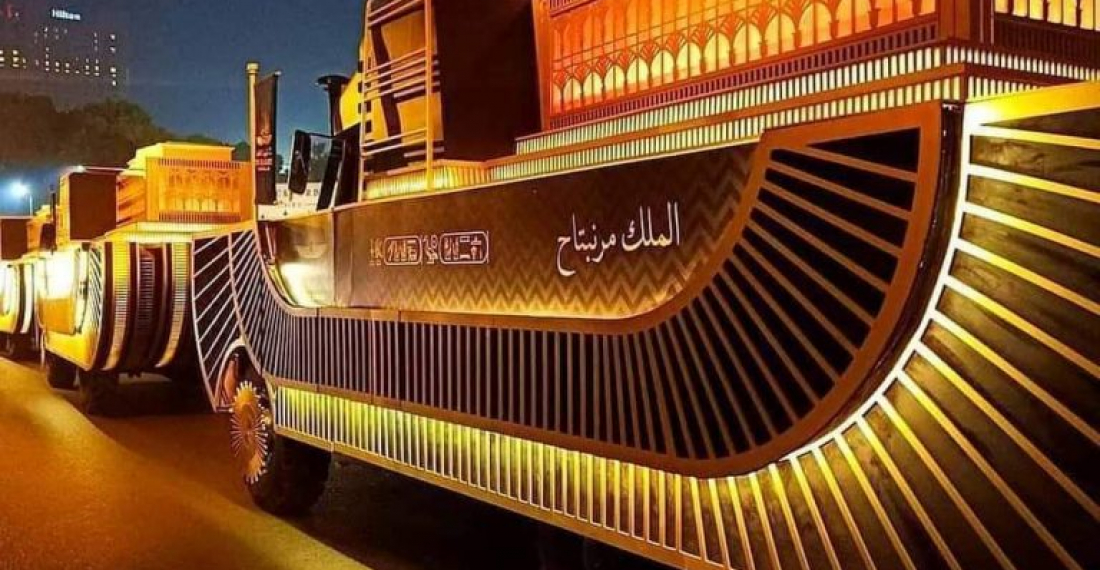The National Museum of Egyptian Civilization, partially opened in 2017, is set to receive 22 mummies from the Egyptian Museum. Egypt’s Ministry of Tourism and Antiquities announced that a parade will take place on 3 April as the mummies are transferred from El Tahrir, in the city centre, to Fustat, part of Old Cairo, where the new museum is located.
Ahmed Ghoneim, head of the National Museum of Egyptian Civilization, said the museum will be open to the public on 4 April, two weeks before the mummies will be officially displayed.
The mummies that will be transferred include some of the key Pharaonic figures such as Ramses II, Ramses VI, Queen Hatshepsut and Queen Ahmose Nefertari.
Egyptian Minister of Tourism and Antiquities Khaled Anani confirmed that "the transfer of royal mummies will be carried out in accordance with specific procedures that take into account all the safety and safety standards used globally in the transport of artefacts, by placing them inside sterilisation units equipped with the latest scientific devices, and then loading them on to specially designed and equipped vehicles for that event, with the aim of maintaining the safety of mummies and ensuring that the celebration is carried out in accordance with the greatness of ancient Egyptian civilisation," the statement said.
The event will also feature various artistic performances by Egyptian artists, musicians as well as renowned film stars, such as Mona Zaki, Hussein Fahmy, Sawsan Badr and Yusra.
As one of the projects sponsored by UNESCO, the National Museum of Egyptian Civilization presents Egypt’s heritage across an extended historical period of time. It will also serve as a cultural centre that hosts concerts, live performances, as well as various leisure activities.






